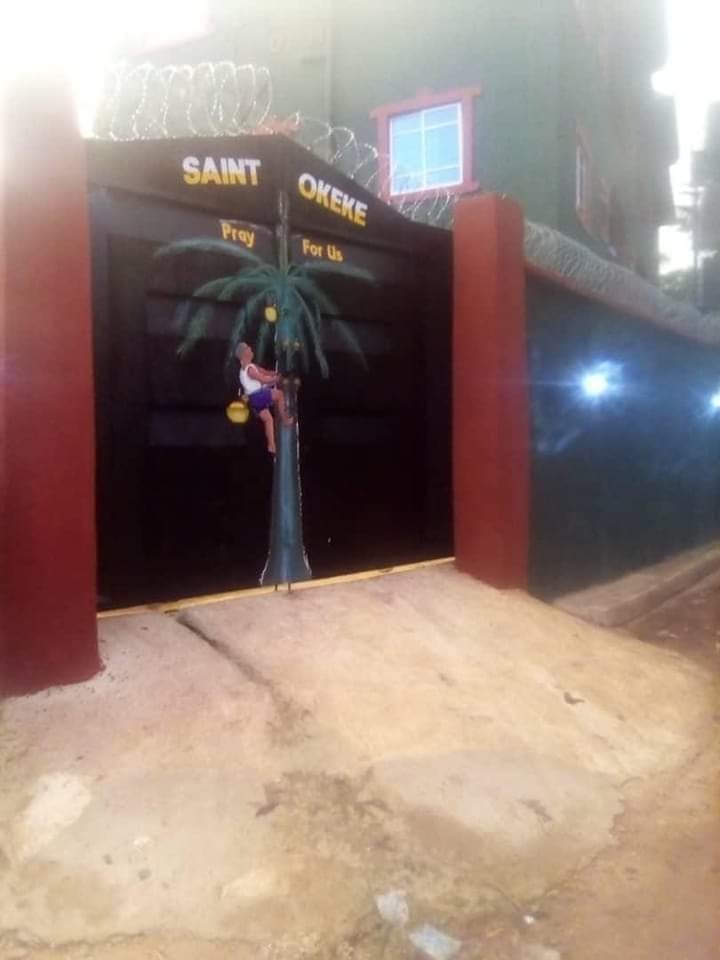
Last week I argued that continuing to undermine native theological names at baptism is a sign of an identity crisis. How about names like Okeke, Okafor, etc?
Canon 761 of the 1917 Code of Canon Law states: “Pastors should take care that a Christian name is given to those whom they baptise; but if they are not able to bring this about, they will add to the name given by the parents the name of some Saint and record both names in the book of baptisms”. Africa is disproportionately disadvantaged in the list of canonised saints. Italy alone, with a population of about 60 million people, has at least 200 canonised saints and over 300 beatified persons. Nigeria, a country of over 200 million people, has just one beatified person, Tansi.
If we continue to emphasise the name of saints at baptism, it means that Nigerians are only restricted to non-Nigerian names.
Since the Church is universal, does it matter? Yes, it matters because saints are models that influence people, culture, and a nation. People grow up admiring the models in their vicinity. One sees the Franciscan effect (ideology of St Francis of Assisi, Italy) all over Italy at the individual and national levels. If all the saints are non-Nigerians, it conditions us to believe that Nigeria cannot produce somebody in heaven. It also affects us as a nation because we lack a saintly unifier.
The Church understands this inequality. Hence, the 1983 Code abrogates the exclusive use of the name of a saint. The current law states: “Parents, sponsors, and the pastor are to take care that a name foreign to Christian sensibility is not given” (Can. 855).
What is “foreign to Christian sensibility”? It is a name that does not contradict Christ’s teaching or one that portrays evil.
Do the names Okeke, Okorie, Okafor, and Okonkwọ connote evil?
First, canonisation is merely an ecclesiastical process to recognise officially that someone is in heaven. It does not mean that only those officially recognised are in heaven. Moreover, the huge financial and logistical challenge of getting approval for canonisation disadvantages poorer countries from getting their holy ones declared as saints. As a result, the Church celebrates the Solemnity of All Saints on November 1.
Second, the names of the saints were previously the names of people who were not canonised. The first canonised ‘Gregory’ is Saint Gregory Thaumaturgus, who lived around 213-270 AD. After that, there have been many other saints with the name Gregory. However, the name Gregory has always been used in the Roman Empire in the Latin form ‘Gregorius’ (which means watchful). The question is: When Saint Gregory Thaumaturgus was baptised with the name ‘Gregory’, which Christian sentiment did the name represent at that time?
In the same way, we should not consider our native names as incapable of being saintly because the Church has not officially recognised them. You could be the saint who would promote your name. After you, others would begin using it.
Who said that Okeke, Okorie, Okafor, and Okonkwọ are not in heaven? I chose these four names because they are the commonest names in Igbo culture since they represent the four market days. It is absurd to argue that in the history of the Igbo nation, an Okeke, Okorie, Okafor, or Okonkwo did not live a good life. One may ask: Which Okeke? Okeke of Ụmụna or Okeke of Eluama?
We know or have heard of dead people in our communities who lived holy lives. If they lived holy lives and are in heaven (crossed to the world of the ancestors), it means that they are saints (Rom 1:7; 1 Cor 1:2), even if the Church does not recognise them officially. There is nothing wrong with praying to them. Yet, the prefix ‘saint’, at least in English, is a misnomer because, although St Paul described many living Christians as “saints” (Eph 1:1; Phil 1:1; Col 1:2), the term is now reserved for those canonised by the Church. A better way is to describe them completely in the native language: “Okeke dị asọ”.
Moreover, what is the difference between praying to saints and veneration of ancestors? Saints are those who lived holy lives while on earth. Ancestors are our forebears that lived holy lives while on earth.
Therefore, Pope John Paul II, in Ecclesia in Africa, wrote:
“The sons and daughters of Africa love life. It is precisely this love for life that leads them to give such great importance to the veneration of their ancestors. They believe intuitively that the dead continue to live and remain in communion with them. Is this not in some way a preparation for belief in the Communion of the Saints?”[1].
Regarding this too, Pope Benedict XVI said that
“the Catholic Church has so much in common: let’s say, the cult of ancestors finds its response in the communion of saints, in purgatory. The saints are not only the canonized, they are also our loved ones who have died. And thus, in the Body of Christ is accomplished exactly what the cult of ancestors somehow intuited”.[2]
I believe my forbears are ancestors. If you do not believe yours are in heaven, it means that they did not live good lives. It is a pity.
Okeke dị asọ – pray for us
Okorie dị asọ – pray for us
Okafor dị asọ – pray for us
Okonkwọ dị asọ – pray for us
All the ancestors and angels of God, pray for us.
K’ọdị🙋🏾♂️
[1] Pope John Paul II, Ecclesia in Africa, available at URL: https://www.vatican.va/content/john-paul-ii/en/apost_exhortations/documents/hf_jp-ii_exh_14091995_ecclesia-in-africa.html, 43
[2] Pope Benedict XVI, Interview of the Holy Father Benedict XVI during the flight to Africa, available at URL: https://www.vatican.va/content/benedict-xvi/en/speeches/2009/march/documents/hf_ben-xvi_spe_20090317_africa-interview.html
